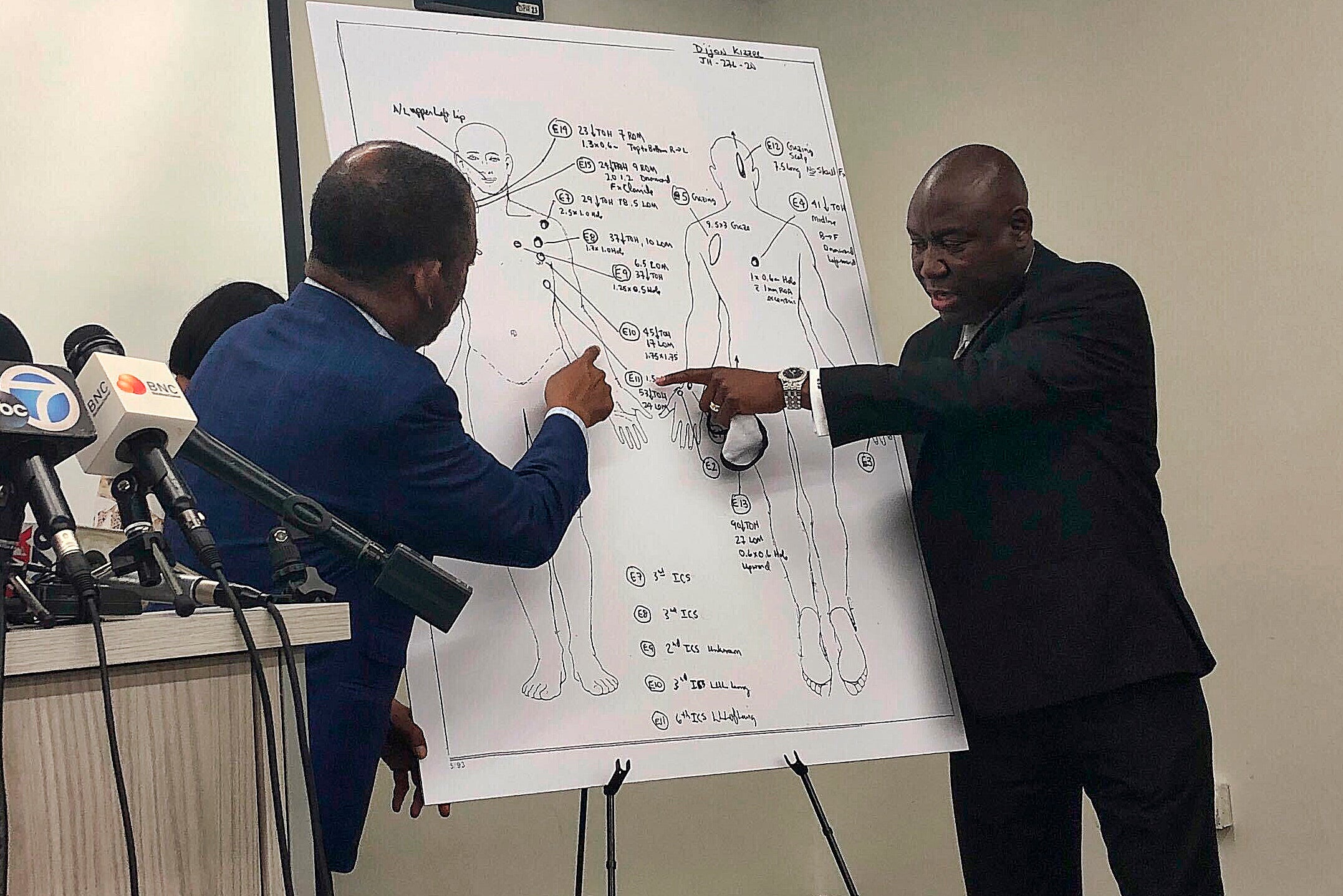Attorney: Black man shot by LA deputies wasn't holding a gun
Attorneys for a Black man shot and killed by Los Angeles County sheriff's deputies says he wasn't holding a gun when they opened fire — contradicting an account from the department

A Black man shot and killed by Los Angeles County sheriff’s deputies wasn't holding a gun when they opened fire attorneys for his family said Tuesday, contradicting a claim that he had picked up a dropped weapon during a struggle.
Dijon Kizzee, 29, “posed no threat" to deputies when they fired 19 shots at him, civil rights attorney Benjamin Crump said at a news conference.
Crump also represents the families of George Floyd and Jacob Blake. Floyd was killed when a Minneapolis officer knelt on his neck, and Blake was left paralyzed by a police shooting in Kenosha, Wisconsin.
Those incidents prompted nationwide protests. Kizzee's death also sparked a series of mostly peaceful demonstrations.
“It is with a heavy heart that I’m standing with yet another Black family who has lost a loved one because of the excessive brutal force of the people who are supposed to protect and serve them,” Crump said.
Kizzee's family stood with Crump and the other attorneys, including his stepbrother and aunts. They wore masks, buttons and shirts that said “Justice for Dijon Kizzee.” Several wept.
“All I want is justice for my nephew,” said Fletcher Fair, Kizzee's aunt, as she called for the deputies to be arrested. “He didn't have to be killed like that. He's no animal. He's human like we are.”
Kizzee was killed Aug. 31 in South Los Angeles after sheriff’s deputies tried to stop him for riding a bicycle in the wrong direction. They said they were unaware he had a weapon wrapped in a piece of clothing he was carrying at the time.
Two deputies told investigators they fatally shot Kizzee after he picked up the handgun he had dropped during a struggle with one of them, authorities said last week. A video shows him stooping down. But a wall blocks a full view, and no weapon can be seen.
It doesn't appear the deputies tried to de-escalate the situation before shooting Kizzee. Authorities previously said Kizzee had only “made a motion” toward the gun but last week reported that the deputies claimed he had picked it up.
Kizzee was shot multiple times in the chest and arms and once in the back, authorities have said. The full autopsy hasn’t been completed yet.
Carl Douglas, another civil rights attorney who is representing Kizzee’s family, said witnesses said the deputies fired three or four shots at Kizzee, followed by a pause and then a second volley while he was on the ground.
An independent autopsy commissioned by relatives shows he was struck 15 times, Douglas said. The attorney said the independent autopsy shows that Kizzee did not die instantly and instead writhed on the ground in pain.
“We have no comment about the private autopsy results,” Sheriff’s Homicide Bureau Capt. Kent Wegener said in a statement.
Douglas said 19 gunshots shows poor police training and a pervasive “warrior mentality” among law enforcement nationwide.
“Until we change that warrior mentality to more of a guardian mentality, there's going to be more (families) who have lost loved ones,” he said. “There's a scourge that patrols the county of Los Angeles.”
The attorneys also questioned why the deputies sought to stop Kizzee while he was bicycling, calling it another example of “biking while Black” and racial profiling.
Crump called Kizzee's death part of racial injustice and police brutality that have been part of the U.S. for centuries.
“We in Black America are dealing with the 1619 pandemic,” he said, referring to the year when the first enslaved Africans were brought to Jamestown, Virginia. “This is an epidemic. The 1619 pandemic has claimed its latest victim.”
Bookmark popover
Removed from bookmarks